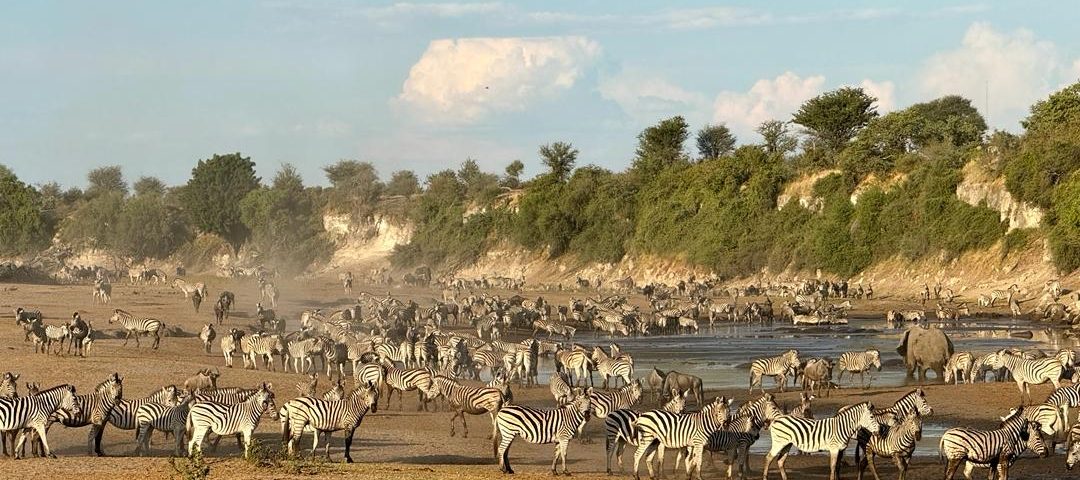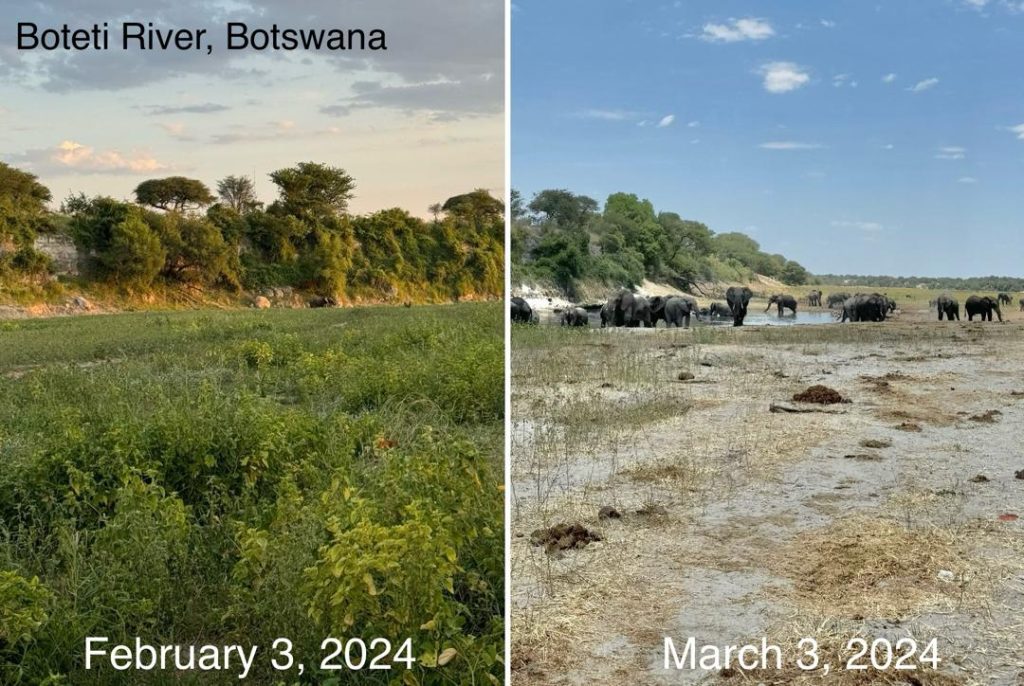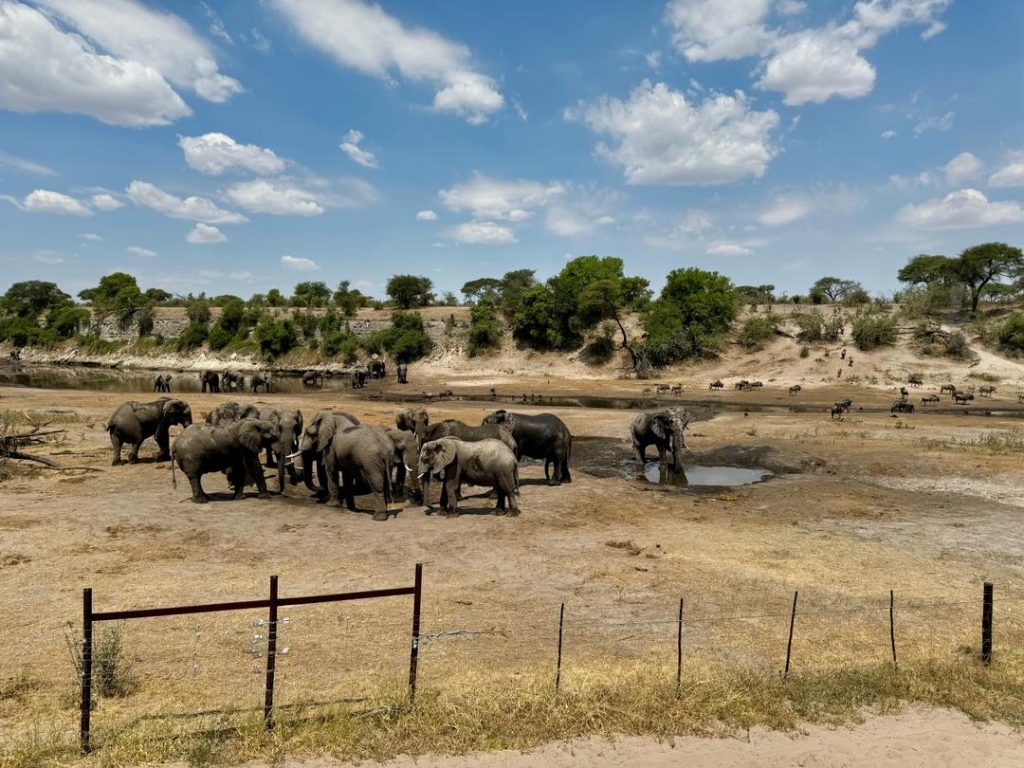Elephants for Africa – Celebrating a Year of Progress in 2023!
December 17, 2023
Congratulations Simon!
December 6, 2024Another drought year ahead

As many of you know, much of southern Africa is currently experiencing severe drought and intense heat, which pose significant threats to wildlife and communities alike. In our remote research camp in the Makgadikgadi Pans National Park in Botswana, we continue to confront the relentless heat, with temperatures continually soaring to 38oC and beyond. The delayed or absent rainfall has left rural communities struggling to sustain their livelihoods, with crops withering in fields and subsistence farming opportunities diminishing.
In recent years we have introduced a number of elephant mitigation strategies in the region, such as solar-electric fences to support livelihoods with safer small-scale farming, and so we, along with the farmers, are so disappointed that this year it is unlikely that the knowledge and equipment we have worked hard to secure and build will not be having the positive impact of protecting valuable crops. The impact of the drought on agricultural productivity has been, and continues to be profound. We, of course, remain hopeful that the farmers can use their equipment and training to benefit future harvests. However, we cannot be naive to the impact of climate change on our region and thus recognize that we may need to adapt our strategies to address the evolving needs of the wildlife and communities we serve.

The repercussions of the drought and enduring heat have led to a distressing development. The usual influx of thousands of zebras and wildebeest, typically seen in May/June, arrived in February. Normally, they find respite in the lush grasslands of Nxai Pan National Park, to the north of us, to have their foals and graze for several months. However, this year, Nxai Pan has received little rainfall, prompting them to migrate southward towards us, where they will likely remain until the rains come in November (fingers crossed). They have already consumed a significant portion of the vegetation, and unless we receive some late rain, the grazers will be forced to relocate or face starvation. A grim prospect for the longest mammal migration in Africa. Like many places grappling with extreme environmental conditions, we are on the frontlines of the climate crisis.
It is, of course, not just the zebras that are being affected; we recently made the sad discovery that one of the male adult elephants we follow through collar data had died. His collar indicated inactivity, and our research team went to investigate; there were two possible outcomes: 1) the elephant had dropped his collar, or 2) he had died. The cause of death remains undetermined, though poaching or hunting is unlikely as he was found with his large tusks. Given the extreme heat measured by his collar, his location near Nxai Pan and his age, we see that the harsh environmental conditions played a factor in his death. This loss serves as a poignant reminder of the effects of climatic extremes and their detrimental effects on wildlife.

Despite these challenges, our commitment to our conservation goals remains unwavering. We will continue to monitor and respond to the effects of climate change on wildlife and communities, while working alongside the global community to navigate this “new normal”.
If you want to support our programs, please visit https://bit.ly/Donate2EfA and stay tuned for more updates and exciting developments from Elephants for Africa.
Stephanie Kong
Project Manager, Elephants for Africa
